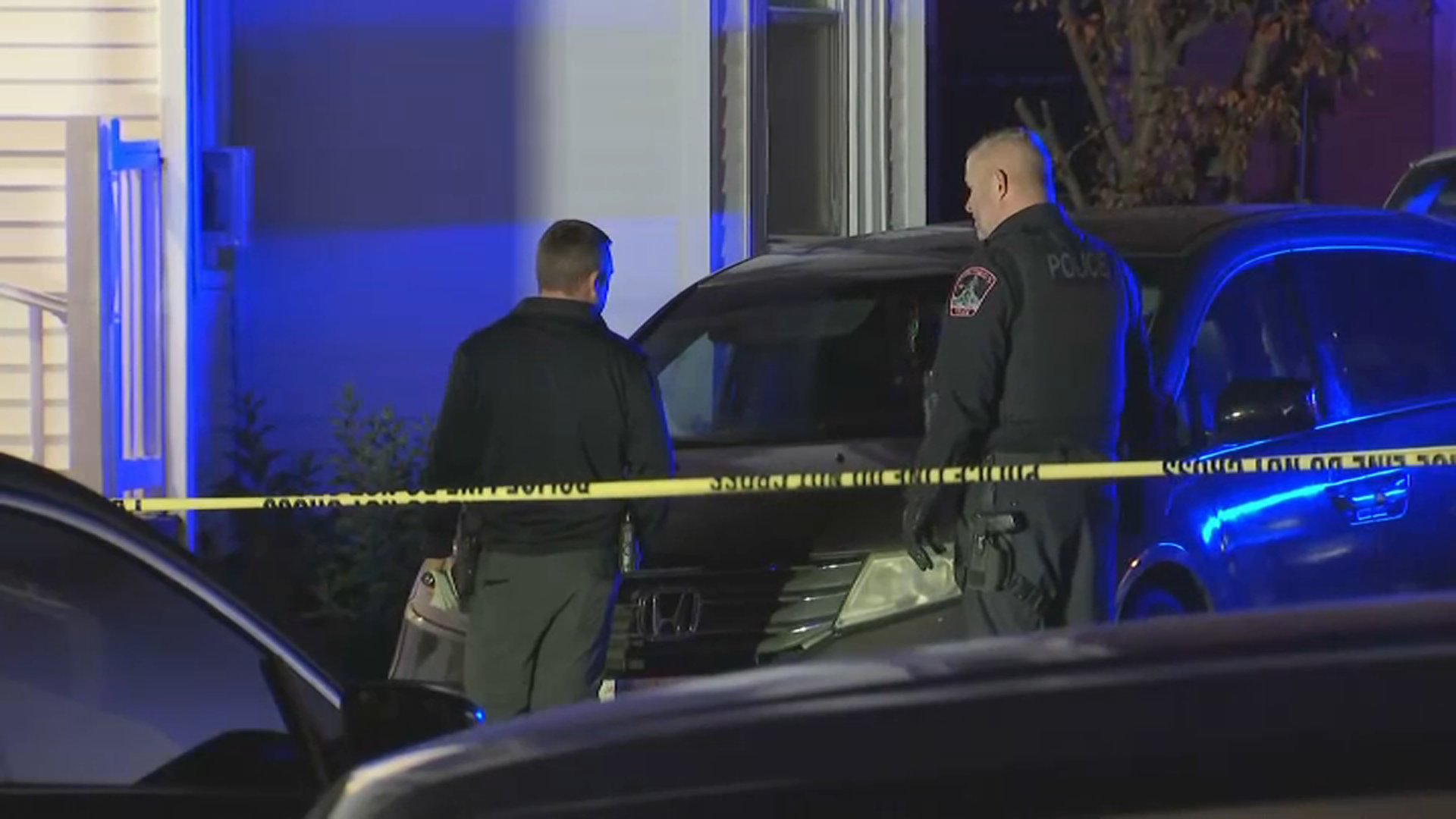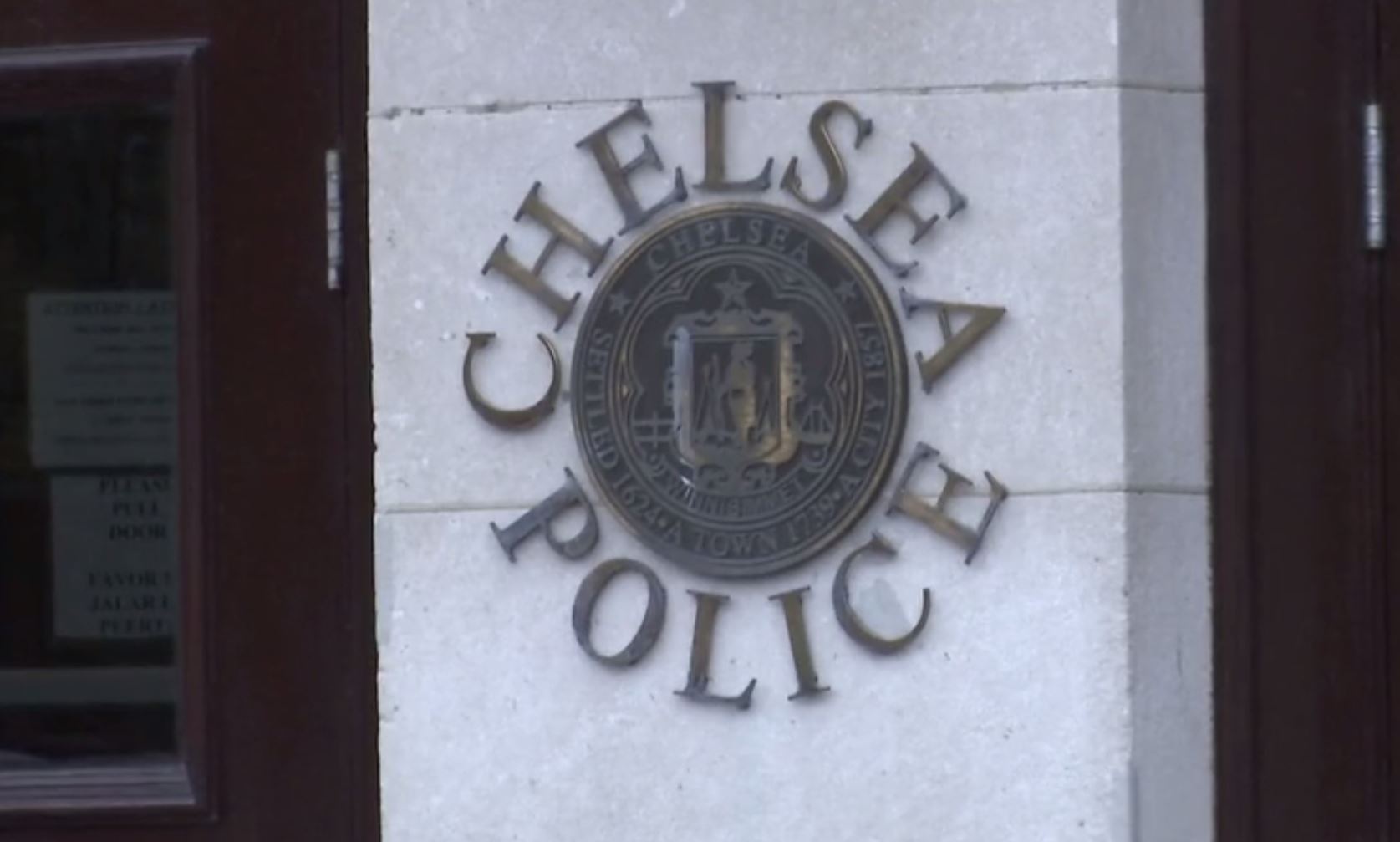
The legal wrangling in the case of the killing of John O'Keefe, a Boston police officer found dead last winter outside a home in Canton, Massachusetts, has attracted outsized attention before the trial's even begun.
Attorneys for the Mansfield woman charged with second-degree murder in the death of O'Keefe, her boyfriend, have continued to argue in court that authorities have accused the wrong person. They claim he was actually badly injured, likely inside the house, which belonged to a fellow officer, and left to die outside in the snow.
WATCH ANYTIME FOR FREE
Stream NBC10 Boston news for free, 24/7, wherever you are. |
As the case against Karen Read proceeds through the court system, with new claims made in court this week, the differences between the prosecution's and the defense's versions of what happened to O'Keefe, a 16-year Boston police veteran who was not on duty at the time of his death, have drawn major attention.
Here's what both sides have laid out, including at this week's hearing, where the data behind a cryptic Google search was discussed.
Get updates on what's happening in Boston to your inbox. Sign up for our News Headlines newsletter.
Officer O'Keefe's Death and Read's Arrest
O'Keefe was found in the snow outside the Canton home on the morning of Jan. 29, 2022, and later pronounced dead at a hospital. Read was arrested days later, on suspicion of hitting him with her SUV and leaving him to die.
In the hours beforehand, O'Keefe and Read had been drinking at a bar with a group of people.
Local
In-depth news coverage of the Greater Boston Area.
Prosecutors have said they were at C.F. McCarthy's bar in Canton with several friends on the night of Jan. 28, then went to Waterfall Bar & Grille across the street around 11 p.m., where they stayed for about an hour. They left there and were invited to a party at the home of Brian Albert on Fairview Road. Hours later, O'Keefe would be found fatally injured outside that house.
Read told police she dropped O'Keefe off at the house shortly after midnight and went home because she was having stomach issues. Read returned to the home with two friends early in the morning after she was unable to get O'Keefe to respond to her calls and texts, and they found him unresponsive outside the home on Fairview Road in the snow amid blizzard-like conditions.
An autopsy found several abrasions to O'Keefe's right forearm, two black eyes, a cut to his nose, a two-inch laceration to the back of his head and multiple skull fractures. Hypothermia was also believed to be a contributing factor in his death.
Read was arrested three days after O'Keefe's body was found. Initially charged with manslaughter, she pleaded not guilty to second-degree murder.
The Prosecution's Claims Against Read
Norfolk County prosecutors have said that Read suggested to the friends who she was with, as well as a Canton firefighter/paramedic at the scene, that she believed she hit O'Keefe with her SUV.
One of the friends told police at the time that Read called her at 5 a.m. and said, "John's dead, I wonder if he's dead. It's snowing, he got hit by a plow."
"I hit him, I hit him, I hit him, I hit him," she allegedly told the paramedic.
Investigators found the SUV at her parents' house and seized it. The 2021 black Lexus SUV had a shattered right rear taillight and several scratches on its rear bumper, and prosecutors have said there were shards of glass embedded in the bumper, consistent with a glass O'Keefe had previously been seen holding.
Pieces of the tail light were also found in the snow outside the home on Fairview Road, prosecutors said.
"The victim and the defendant had been arguing for quite some time. Numerous times over the weeks preceding this, that on one occasion the victim had attempted to break up with the defendant, had asked her to leave his home and she refused to do so," Assistant Norfolk District Attorney Adam Lally said in court in June.
The Defense's Claims of a Coverup
Since last year, Read's team has alleged a large-scale coverup in the case, pointing to evidence on O'Keefe's body and from a search they did of a cellphone that belonged to someone else at the party as proof. They say that the state police investigator in charge of the case had ties to the homeowner, and say people at the party coordinated to point the blame, falsely, at Read.
Lally called the search for the dog a fishing expedition, arguing that the defense has not showed the "relevancy or evidentiary value" of the records requested.
The defense elaborated on their claims in a court appearance on May 3. Her attorneys said they have been denied access to evidence, but that the evidence they have seen suggests O'Keefe actually died inside Brian Albert's home.
Alan Jackson, one of the lawyers representing Read, argued that the wounds found on O'Keefe's arm after his death were not consistent with a car crash but an animal attack. He pointed to the German shepherd previously owned by Albert, which has since been rehomed.
According to Jackson, Albert told a grand jury that his dog was inside on the night of O'Keefe's death.
"If that dog was inside the house that night — not on the front lawn, not in the front yard, but inside the house — and these injuries were suffered or sustained at the time John O'Keefe was killed, then that means that John O'Keefe was inside the house when he was killed, and it also means that his body was moved," Jackson argued.
He also pointed to cellphone data that suggests O'Keefe went up and down stairs after Read dropped him off, though the prosecution has said such health information is unreliable.
Jackson said the defense needs records about the location of the dog, if she is still alive, as well as a saliva sample and a hair sample. The judge in the case later granted the defense's request for any information the town has on the dog, a victory for Read's team.
NBC10 Boston has reached out to two of the people whose actions Read's attorneys have called into question — Albert and Albert's sister-in-law, Jennifer McCabe — and has not heard back.
Neither Albert nor McCabe has been charged with a crime, and lawyers for both successfully argued this week that they should not be called as witnesses in an evidentiary hearing in the case.
"Ho[w] Long to Die in Cold"
On April 12, in a motion seeking access to Albert's phone records, Read's attorneys said newly uncovered records from McCabe's phone showed she had searched the phrase, "Ho[w] long to die in cold" on Google hours before 911 was called to report O'Keefe was found in the snow.
In a statement at the time, Jackson and David R. Yannetti, another defense attorney, said this evidence establishes other people "were aware that John was dying in the snow before Karen even knew he was missing."
Read's attorneys say that she frantically began calling friends, including McCabe, after becoming concerned that O'Keefe had not returned home to his children.
Read's attorneys said in the court documents that McCabe "inserted herself into the 'search' for O'Keefe, making every effort to delay Ms. Read in returning to the Albert Residence to look for him." The defense said she "insisted" they drive Read's car back to O'Keefe's home, where Read had already searched for him unsuccessfully.
Read and McCabe arrived together at 6 a.m., where Read found O'Keefe unresponsive, her attorneys say. McCabe called 911.
"Immediately after disconnecting with 9-1-1 dispatch," attorneys for Read say McCabe made two calls at 6:07 and 6:08 to a cellphone belonging to her sister — Albert's wife, who was also out with the group the previous night — and deleted them from her phone. She also made an unanswered call to Albert at 6:23, which was also deleted, Read's attorneys say.
Less than a minute after that call, the lawyers also allege McCabe opened an article titled "How Long Does It Take to Digest Food," which the defense connects with the digestion process often being used by investigators to calculate time of death.
The attorneys add that Albert and his wife "were among the first individuals to be notified that O'Keefe was lying unresponsive mere feet away on their front lawn, and in spite of being in such close proximity, made no effort to go outside and assist or otherwise investigate the emergency that was unfolding on their doorstep."
Hours later, McCabe allegedly tried to "sanitize" her phone of contact with Albert, deleting his contact information, which had been saved under "uncle brian a."
Additionally, on Feb. 1, Read's attorneys say McCabe made "a transparent (and unsuccessful) effort to conceal her own criminality and blame it on Ms. Read," telling police that after the two arrived at the scene of O'Keefe's death, "Karen then immediately yelled at [me] two times to Google, 'How long do you have to be left outside to die from hypothermia.'"
At a court hearing Wednesday, the prosecution and the defense had different interpretations of the data and what it meant, both citing forensic experts. Lally said the evidence suggests that McCabe made the search in the minutes after O'Keefe's body was found.
After both sides in the case traded explanations, the judge denied the defense's request for more access to cellphone data.
What Read Said About the Case
After Wednesday's hearing, Read briefly spoke to reporters outside the courthouse.
"It feels we're the only ones fighting for the truth of what happened to John O'Keefe, and me and my family and my attorneys and my team have marshaled every resource to get to the truth. It just feels like no one else wants it," she said.
Asked by a reporter if she killed O'Keefe, she said, "We know who did." One of her lawyers, Alan Jackson, jumped in to say, "No, she didn't do it. No, she didn't do it. This is an innocent woman. She didn't do it."
And Read added that, when she found his body outside the home early on Jan. 29, "I was the only one trying to save his life."



